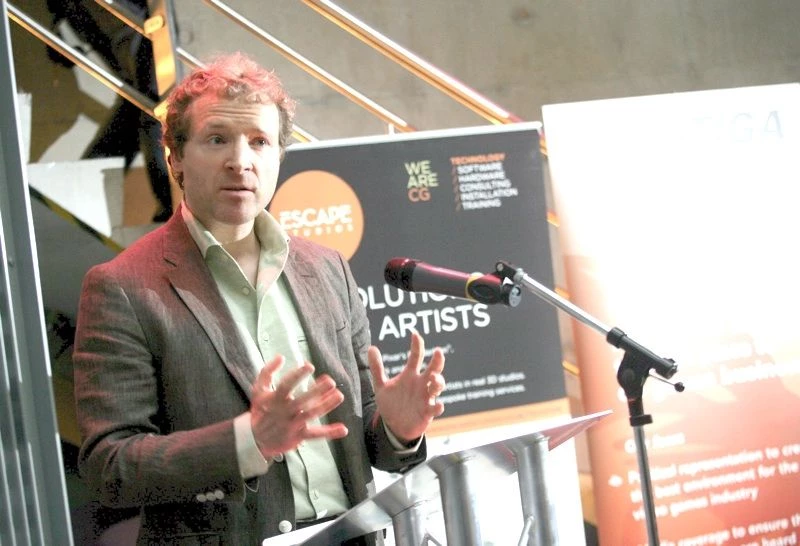
Partner Article
Securing the best candidates for UK games industry
Richard Wilson, CEO of UK games trade association, TIGA, shares his views on securing the best candidates for the industry.
If games developers are to boost their chances of consistent and profitable growth in the thriving UK games industry, it is important that the recruitment process is well organised and helmed by knowledgeable individuals. The final stages of recruitment are the most complex as this is the time at which companies will make contact with candidates, organise interviews and make important decisions regarding their new employees. These are sometimes difficult and unfamiliar tasks for new or small studios, but TIGA has identified elements of good practice in its latest guide (Best Practice Guide for Recruitment and Selection in the Games Industry) that will help developers navigate their way through this potential minefield.
In the UK games industry, recruitment is fast-paced and highly competitive so it is important that the job application process is as streamlined as possible. If there is too much form-filling to undertake, some candidates will be discouraged from applying meaning that a company risks losing out on talented individuals. For the purposes of applying for a job, a CV and covering letter is standard in the games industry and this can be emailed direct to a specific jobs email address or via an online application engine. When a company receives an application it is good practice to acknowledge receipt, which will show the developer in a good light.
If an applicant has been unsuccessful at this particular attempt, providing feedback on why they have not been shortlisted and highlighting any weaknesses with their application, CV or skillset will be appreciated. It gives the applicant an opportunity to improve and increases the likelihood that they will apply for positions at the company in the future when they have gained the skills and work experience necessary.
A candidate will expect a response to a CV within 7 to 10 days but if you are faced with a good CV, do not delay in responding to it. Due to the sheer number of applications sometimes received by developers, it is advisable to arrange phone interviews. This will eliminate a large proportion of unsuitable candidates and limits the inconvenience involved for candidates who may have to travel from far flung places. Face-to-face interviews with the strongest candidates can then be scheduled.
It is important that the people responsible for interviewing and hiring new talent at a studio have had an appropriate level of recruitment selection and interview training. Interviewing is an acquired skill and interviewers should have a good comprehension of relevant legislation in order to safeguard the company and to ensure a fair and consistent approach to the treatment of interviewees. Interviews should be scheduled at appropriate times and places and it is important that every candidate is given an equal opportunity to display their capabilities for the position on offer.
When a decision has been made on successful applicants, formal offers of employment need to be made in writing. If an agency has been involved in the recruitment process it is normal to let the agency broker an offer to the candidate. The ebb and flow of the games production cycle means that it is in the interests of companies, and sometimes candidates, to use a mixture of models of employment including full time, contract or freelance contract workers. Many core roles will need to be permanent but the flexibility inherent in these different contracts enables companies to remain agile and more cost-effective throughout development projects. It is also important to communicate decisions to unsuccessful candidates and to let them know if you believe they would be suitable for future job opportunities.
Candidates can and do get additional offers of employment from other companies so it is important that developers keep in regular contact with the candidate and help with all aspects involved with joining the new company. This should be followed up by a comprehensive and welcoming induction process. Constant feedback from new employees will help companies hone and improve their recruitment and retention practices.
Over the last few weeks I have written a number of articles detailing the aspects of the recruitment process that we identified as most important for inclusion in TIGA’s Best Practice Guide. If our members and other games companies employ some of the advice that we gathered from experienced industry veterans and games industry recruitment specialists Interactive Selection, this will give them a real competitive edge when recruiting and selecting staff.
This was posted in Bdaily's Members' News section by Richard Wilson .
Enjoy the read? Get Bdaily delivered.
Sign up to receive our popular morning National email for free.








 Raising the bar to boost North East growth
Raising the bar to boost North East growth
 Navigating the messy middle of business growth
Navigating the messy middle of business growth
 We must make it easier to hire young people
We must make it easier to hire young people
 Why community-based care is key to NHS' future
Why community-based care is key to NHS' future
 Culture, confidence and creativity in the North East
Culture, confidence and creativity in the North East
 Putting in the groundwork to boost skills
Putting in the groundwork to boost skills
 £100,000 milestone drives forward STEM work
£100,000 milestone drives forward STEM work
 Restoring confidence for the economic road ahead
Restoring confidence for the economic road ahead
 Ready to scale? Buy-and-build offers opportunity
Ready to scale? Buy-and-build offers opportunity
 When will our regional economy grow?
When will our regional economy grow?
 Creating a thriving North East construction sector
Creating a thriving North East construction sector
 Why investors are still backing the North East
Why investors are still backing the North East